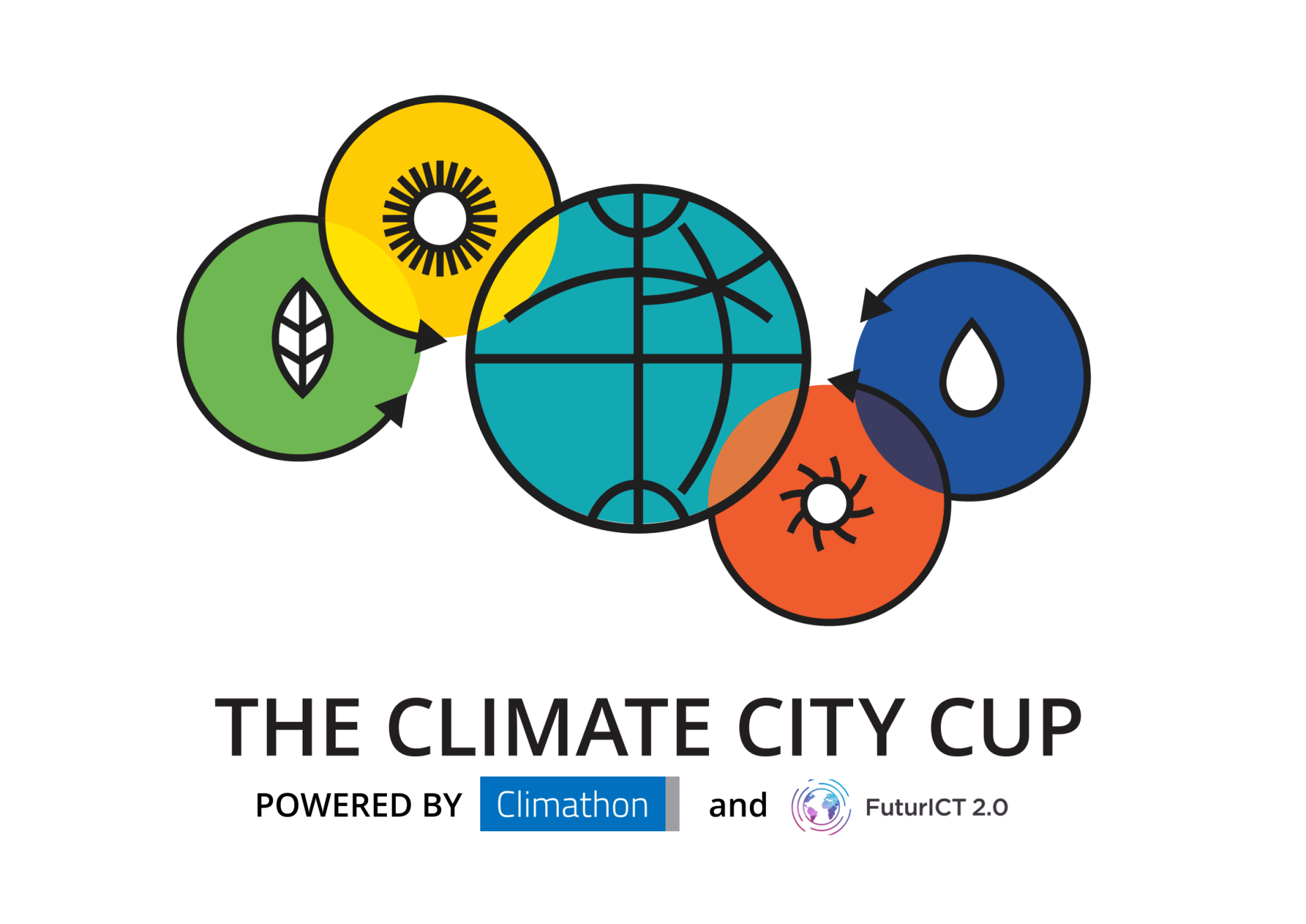Climate City Cup

Contact: Stefan Klauser
The Climate City Cup is a competition for finding the most useful means in fighting climate change and spurring social collaboration on the city level. It aims to enable citizens to take on fast actions, get engaged and activated without waiting for national or international regulatory pressure.
Idea
Today, every second person lives in a city. By about 2050, the cities’ share of the world’s inhabitants is believed to grow to up to 70%. Or as James Alexander from the city initiative C40 has put it at the 2018 Innovate4Climate meeting: “Every months, the world is adding a city the size of Singapore.” And already today, cities account for three quarters of the planet’s greenhouse gas emissions (See: external page GIZ (2017): Challenges and Opportunities for Urban Climate Finance – Lessons Learned from eThekwini, Santiago de Chile and Chennai).
So cities will be the central actors in future climate change mitigation and adaptation. But how can cities be motivated to engage in climate protection? And how can they finance climate action? A study by the German GIZ summarizes the central problem: “The case
studies show that lack of awareness and political priority for climate change prevent cities from taking action. People tend to underestimate the costs of inaction versus potential co-benefits of climate smart development because they are very long term and difficult to
measure or quantify.” Consequently, GIZ issues the following recommendations to municipal authorities (excerpt):
- “Assess and widely communicate long-term socio-economic impacts of climate change. This will create buy-in of citizens and governmental departments, increase demand for climate-smart urban services and infrastructures and help justify the costs of climate action. Such analyses should be conducted with support from academia.
- Develop a citywide climate change strategy and make provisions for mainstreaming key priorities into sectoral strategies and urban planning.
- Exchange information on successful project proposals with other cities, possibly from other (but similar) countries.
- Engage the private sector in climate action, e.g. by illustrating the effects of climate change on industries and by highlighting best practice examples of climate projects with good return on investment.”
Taking into account the above mentioned recommendations, we have developed a new approach to supporting cities in their efforts for engaging in urban mitigation, the so-called Climate City Olympics. The Olympic games are held every two years and attract hundreds of millions of viewers worldwide, just to see how people compete in different sports. Why not adopt this idea in other areas, such as countering climate change and fostering sustainability? And how can this format contribute to reaching the United Nations Sustainability Goals, as laid out in the Agenda 2030, the Paris Climate Accords, and elsewhere. A dedicated group of leading visionaries from universities, governments and civil society institutions met on May 7 and September 11, 2018, in Vienna to brainstorm on how to organize the Global City Climate Olympics, where cities and regions around the world would regularly compete for the best environmental-friendly, energy-efficient, resource-saving and crisis-proof solutions. The results of these workshops have led up to the following strategy
Organization of the first City Climate Cup
At the 2nd Workshop on Climate City Olympics, participants have agreed to accept the proposal of TIA Summit and the UNFCCC to
- Start the 1st Climate City Olympics at the TIA Summit 2019 in Bangalore, India, July 2019.
- Award the winners of the 1st Climate City Olympics at the COP25 in Santiago de Chile, December 2019.
The competition phase would thus last for five months. The first edition should be organized as a pilot version with a relatively small number of cities (5-10) from different continents.